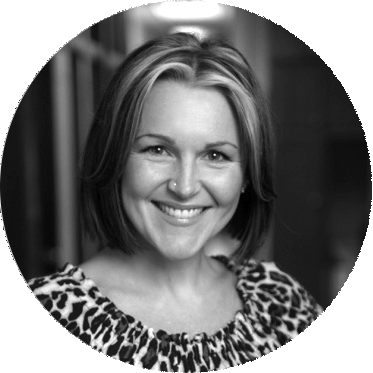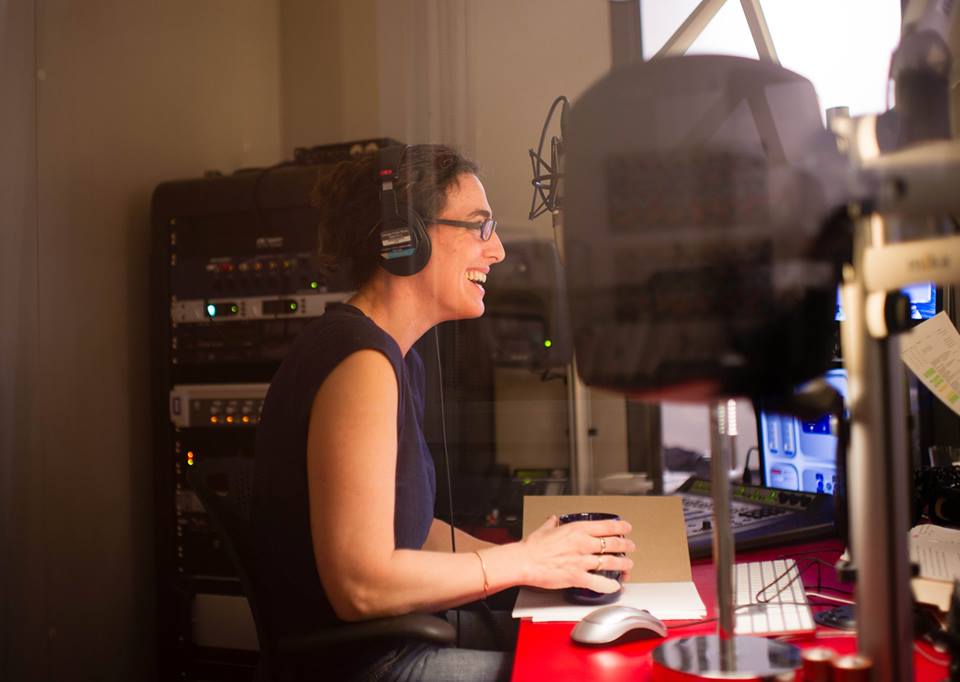The host of Serial discusses the tricks to a great podcast
"None of it is ad-libbed. It's all scripted."


A free daily email with the biggest news stories of the day – and the best features from TheWeek.com
You are now subscribed
Your newsletter sign-up was successful
If I had to pick five words to explain the astounding appeal of the Serial podcast and its beloved host Sarah Koenig, it would be these, uttered by Koenig earlier this season:
"That's me, calling the Taliban."
The most popular podcast of all time, Serial dives deep into a dramatic true story each season, untangling clues and cover-ups almost in real time, week by week. Last season, which was downloaded over 100 million times and earned a Peabody Award, was about the murder of a high-school girl whose ex-boyfriend, Adnan Syed, was convicted of the crime. This season centers around Bowe Bergdahl, the U.S. soldier who walked off his Afghanistan base in 2009, and spent five years in a Taliban prison.
The Week
Escape your echo chamber. Get the facts behind the news, plus analysis from multiple perspectives.

Sign up for The Week's Free Newsletters
From our morning news briefing to a weekly Good News Newsletter, get the best of The Week delivered directly to your inbox.
From our morning news briefing to a weekly Good News Newsletter, get the best of The Week delivered directly to your inbox.
Koenig's quip about calling the Taliban — which she totally did — shows how far she'll go for answers and, with a wink, illustrates the irresistible tone of her storytelling. Unlike newscasters whose robotic deliveries distance the reporter from the story, Koenig is delightfully human. She's a diligent and skeptical journalist, but she's also unexpectedly real, flavoring her reporting with observations like, "I know — weird, right?" or "I don't actually understand what's going on" or "I know. I know! It's maybe not what you wanted to hear."
I had the nearly-peed-myself thrill of speaking with Koenig last week and got to ask her all the stuff I wonder when I'm listening obsessively to Serial. She was exactly as awesome as you'd think.
Q. You've worked as a newspaper reporter. What's gained and lost in the transition from telling stories in print to telling them in audio?
A. What's lost in radio is you just can't do the same kind of technical detail or explaining. I can only talk to you for a minute and a half about cell-tower technology before you're just going to be, like, "Stop, stop, stop! I can't take anymore." But what's gained is all the nuance of people's personalities and the way they talk. Sometimes you can shortcut a lot of writing because you're hearing it emotionally.
A free daily email with the biggest news stories of the day – and the best features from TheWeek.com
Q. This season's story seems like a 24/7 gig: Trying to get interviews with the CIA, history lessons in Pakistani relations, drone policy… Are you working around the clock?
A. I do sleep and eat and spend some time with my kids when I can, but yeah, it's every day. It's consuming, and not just for me. I kicked off work at 4:00 yesterday but my colleagues were there till midnight finishing mixing the next day's episode.
Q. Are you ever intimidated by the material this season? The military goes out of its way to use jargon and keep civilians out of its business. Do you ever think, "I'm in over my head here"?
A. It's a huge, huge learning curve for me. Initially I had some trepidation of, like, will I get my head around this and how long will it take me? But in terms of coming to it green, I think that's any reporter. If you're genuinely curious about something, people appreciate that. And sometimes being a dummy helps because you're getting people to explain things they might not say to someone who already has that background. And the people who are listening are not, by and large, experts, either.
Q. How much of what you say is scripted and how much is ad libbed?
A. None of it is ad-libbed. It's all scripted.
Q. But you sound so off the cuff!
A. I know, but that's our trick. The goal is to make it conversational, to make it not feel like you're taking your medicine. That's the style I learned to write for radio in, with This American Life. I care enormously about the language. Believe it or not, I'm actually really a stickler.
Q. You were on Colbert last week — your second time. As a reporter, how do you wear this mantle of being-the-interviewee?
A. It's incredibly uncomfortable. It's horrible what we do to people! It's horrible! In the perfect world I would do no interviews at all, but I feel like I should take my own medicine. It really is a leap of faith you're making when you're trusting your thoughts to another human being to convey. That is a really sacred thing! It's made me much more sensitive and more careful as a reporter.
Q. Understandably, you don't want to be the story. But what do you want listeners to notice about your reporting — about the way you put these stories together?
A. I hope that you trust as your narrator that I'm going to ask the questions you have and I'm also going to tell you what I'm thinking — and that what I'm thinking is based on a lot of homework and fact-checking.
Q. What's your greatest fear when you start these projects, and does it change as you go along?
A. Deadlines. No, it never changes.
Q. There was a moment in Season One when you said it wasn't your job to exonerate Adnan. What is your job, besides keeping readers interested?
A. To shine a light on things that are murky or systems that aren't working the way they should. I feel very old-fashioned in that way. I don't want to be all finger-waggy about "kids today," but there is this tendency that we're a very judgmental society. People, wow, they're so sure about things — and I don't move through the world that way. I'm not sure. And I want to find out.
Starshine Roshell is a veteran journalist and award-winning columnist whose work has appeared in The Hollywood Reporter, New York Post and Westways magazine. She is the author of Keep Your Skirt On, Wife on the Edge and Broad Assumptions.
-
 The Olympic timekeepers keeping the Games on track
The Olympic timekeepers keeping the Games on trackUnder the Radar Swiss watchmaking giant Omega has been at the finish line of every Olympic Games for nearly 100 years
-
 Will increasing tensions with Iran boil over into war?
Will increasing tensions with Iran boil over into war?Today’s Big Question President Donald Trump has recently been threatening the country
-
 Corruption: The spy sheikh and the president
Corruption: The spy sheikh and the presidentFeature Trump is at the center of another scandal